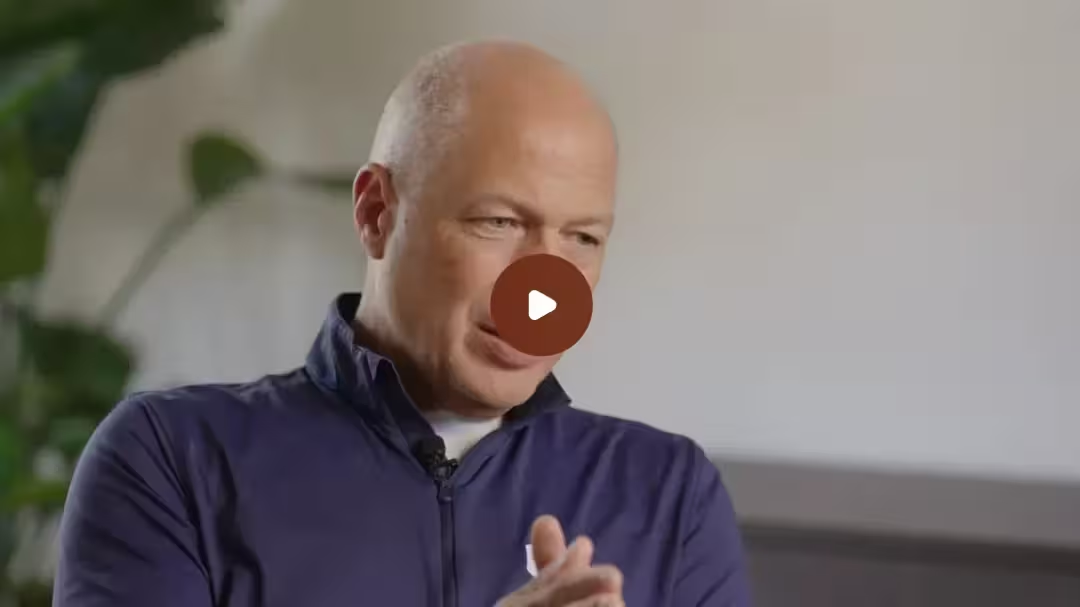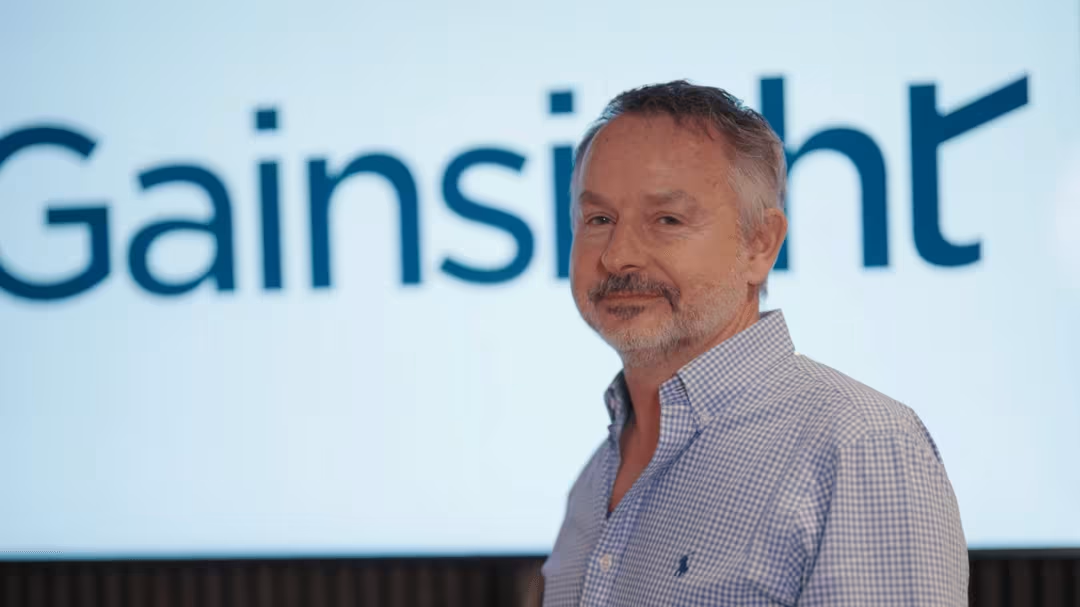Having dipped her toe in many elements of the sales ops world, I was excited to sit down with Crystal Trujillo-Sauter to pick her brains and find out about the path she's taken that has lead her to her current role as Director of Sales Operations at Cloud Elements. Crystal joined me all the way from Wyoming to share her experiences...
Rory Brown (RB): Crystal, thank you so much for joining me. To start with, it's always good to just get a little bit of a feel of who is Crystal? And how did you meander your way into sales ops. It would be great to get a context on how you made it in there.
Crystal Trujollo-Sauter (CTS): I have jumped everywhere from being tech support to customer relations to professional services to where I'm at now. I look at every opportunity within each of those respective jobs as a way to help people, whether that's internally or externally. To look at what are we trying to accomplish as an end goal. The mindset is actually what becomes really the strength in operations. Also, understanding from the beginning of the sale and sales operations, pre-sales, post-sales; that funnels and has an impact, cross-functionally all the way through the entire company. Having played a piece in each one of those adds additional strength to understanding what I'm doing from an operational perspective to the company.
RB: Perfect. I like that a lot. To give me a bit of a sphere, what are some of the more recent significant projects or initiatives that you've been working on that are perhaps fresher in your mind that you could share.
CTS: I'll start with my most recent and we can work backwards. Actually, Cloud Elements brought me on in the last four weeks to get CPQ launched. The company that Cloud Elements is at is fairly new to the concept and doing it in a more regimented, process-oriented way. Due to my experience in working with the CFO at LogRhythm, he actually was like, "You're the person to come in and get this done and over the finish line for us." That's an incredible. CPQ is something that I've been just passionate about for years. It was something that I was trying to get into LogRhythm for a long time and just couldn't get it over the threshold before my tenure was up. So I was happy to see it come to life here at Cloud Elements in the last week, actually.
RB: Actually, this is great because we’ve only done a couple of interviews focused around CPQ. Why it's important, what triggers it, and how to build a process so that it works. Maybe if we start from the top. What triggers the need. What has to happen or what's the landscape to say, "Right, CPQ is now the thing we need to implement."
CTS: There are a lot of aspects for CPQ in my opinion.Where do you start? There's the million-dollar question! I think that varies company to company where you're at, size, growth, and where you want to be. For me fundamentally, it's about the efficiencies that it brings as well as data integrity. Rather than having, for lack of a better term, willy-nilly processes around the sales reps a little bit more leniency than maybe they need, where it again has downstream impacts, you need that structure and that consistency.
So by implementing CPQ, it starts even from the product configuration into a quo, creating those guidelines so that we can do really good reporting. And understand what products we're leveraging and what area, territory, hotspot and how do we leverage that to continue to do what we do really well? What products are hitting what vertical to that and how do we continue to hit those verticals? Without CPQ, you can't really glean that information. Well you can but it's hard and it's very manual across all the departments that are impacted. Whereas CPQ allows you to get that visibility in a very quick, efficient manner.
RB: Brilliant, I like that. Just for clarity, what are the stretch of departments you think are influenced by the lack of, or the deployment of CPQ?
CTS: Which departments are impacted by it?
RB: Yes.
CTS: All of them. Like I said, it goes from the product team and creating their products and helping design it in a way that makes sense, that it also has some flexibility, as well as structure. Down to obviously the sales team who's going to be leveraging it for proposals, et cetera, to accounting who's going to be invoicing it, to the customer care team or the technical account managers who have to then support that customer after the purchase. So all the way through the cycles. Then it can even come back into marketing and lead gens to the land and expand conversations. What are you using? What features are you not using? Where do we market new products?
It's just an infinity circle in essence that it continues to go through that cycle over and over and touches every department. There's probably the part they are not even thinking of, like engineering. They can then see and understand and leverage that information to see what products are being used and leveraged and where we can continue to build our road map. The possibilities are endless as to which departments that could be influenced by CPQ in my opinion.
RB: If we take step one, you recognise that something needs to be done. One of the things you need to think about before you start implementing, what are the planning stages like? Who do you need to get involved? How do you pull everyone in and understand how it needs to work?
CTS: I think the biggest contributor and buy-in that you needed is sales. The head of sales, whoever is running that regardless of their title, that person has to be bought in to the methodology and the concept because their team ideally is the most impacted from a hands-on approach. You really got to understand what reservations or what wins they're looking for to have that buy-in and continue sponsoring it to the rest of the c-level management for budget and support.
Then from there, listening. In any project. The key in operations is understanding and listening to the cross-functional departments, what do they need and what are they not willing to compromise and why? Can you put it in a position that allows them to understand that this is for them, not against them, across every department you work with?
RB: Just going back to that head of sales, how would you find the concept of reservations? We all know that salespeople don't necessarily like change; they like to carry on as they are. How would you spin it around to something that's going to help them and make them believe it?
CTS: Doing it in a research. Going out and understanding how much time is a sales engineer, for example, spending on doing configuration manually? How many times are we potentially selling an incorrect configuration that has a customer impact? Where are we losing money, whether that is time of people or customers externally that we can help improve by systematising it? It's a lot of research of understanding where your wins are on that aspect.
RB: So essentially what you're doing is you're taking a very obvious ROI argument to that person, numbers that they understand to say, "Hey, this is why we're doing this."
CTS: Precisely.
RB: Brilliant. What about when you start to talk to finance service? The same system for them or do you find it's a slightly different approach for a conversation?
CTS: For me, historically I have found when I've had to have this CPQ conversation; they have actually gone extremely well. They see the value almost immediately with the structure to be able to feed it into their accounting and finance SPNA P&L data. Having that structure is usually very big win for them and they're usually pushing for it behind the scenes. I found them to be the easier win in those conversations.
RB: Great. What would you say is most likely to go wrong with a project like this? I'm sure it's not all plain sailing. What are the maybe pitfalls that you've avoided or gone down and then reverted back?
CTS: That's a great question. There are always pitfalls in every project. I think with CPQ, the biggest pitfall is having that full company buy-in and making sure that you're clearly communicating the impact. If you don't fully communicate and define a goal forward plan, you will get immediate push back even after the go-live and then it becomes useless. Nobody wants to adopt it, nobody sees the value all the time. It's just frustration and anger.
It's a matter of asking those tough questions during the process. For example, right now to be quite honest one of the pitfalls is the company didn't thoroughly set out and understand current quote life, and the impact that it would have moving to CPQ from a manual aspect, for both the sales reps as well as potential product migration and change. It's clearly communicating and understanding that and coming up with a game plan that assures them that you thought through it, and that is going to be okay. Collectively, we're going to get through this and we're going to survive.
RB: A little bit around the complexity, I imagine if you really want to, you could make this quite a fairly complex tool or project. How do you strike the balance between capturing all the information that you've already said you want to be able to do all the great reporting on and not making it too user unfriendly for the simpletons in sales that just want to be able to tick a few boxes and then crack on with a prospecting whatever?
CTS: That's always a big key in understanding how you get the flexibility, simplicity, and user functionality front-end, but keep all of the back-end data to the point you want, you're spot on there. The key is: try to keep it simple. Especially when you first want something like this, you don't want to try to launch what I'll call the purple squirrel. That doesn't really exist. What you do is you put yourself between a rock and a hard spot in the corner where you can't even grow into it without putting in more time, money, and maybe completely having to redo the project because you over complicated it rather than just keeping it more simple. Rather than sticking to the best practices, getting a feel for how is this working and how can we grow it and thinking three years down the road, not six months down the road for the board meeting.
RB: If you start to roll it out, is there ways to monitor usage or how well it's being used or whether you're getting pretty obviously, the data is missing?
CTS: This is definitely hard because it's generally within the overall CRM tool and a lot of times you just see the quotes. Hopefully, again in operations, if you are doing open office hours, you're constantly reaching out asking for feedback. You're creating rapport with some of the sales reps and sales directors and management team. Hopefully, you're getting candid offline conversations and feedback as to how is it being adopted and received.
Same with sales engineering, staying in touch with them and their management and understanding, did we really save you time, or did we make it too complex? Being open to hearing that is huge and understanding maybe we need to reevaluate a few things and turn a couple of knobs and make some adjustments to continue improving it. We didn't thoroughly think that through or we missed it. It happens when you have that many things in flight.
RB: Of course. We touched on this at the very beginning actually, but just want to bring up the conversation on success. When it comes to CPQ, I think you've already alluded to it, but what are some other key measurables that you've looked at that have been a success? Are there other more qualitative aspects that define success? How do you go about that?
CTS: Biggest success for me in a project like this is: is the front-end happy? Did we streamline their process as well as the efficiencies in the back-end data structure that we needed? That is success to me in a project like this because if your sales team isn't happy, guess what? You're not makingsales.
RB: Correct. Any metrics that you might put up? You talked before about ‘can we reduce time? Can we give them more time back selling?’ Is there anything like that you look at or is the qualitative aspect enough to know that it's successful and it's giving you the information you need?
CTS: You’ve got to look at the time that we're saving the employees. That's a huge success marker. If it took a sales rep 20 minutes to create a quote or more in some instances and you've been able to streamline it down to 5 minutes, yet put in the regiments and the required information for financial accounting and the auditors, that's huge.
RB: It's purely that and things like accuracy or number of financial disputes or something like that that comes later down the line?
CTS: Yes.
RB: That's great. Bringing this on to a wider conversation and I’m keen to get your thoughts on this. In your opinion, what is success for a sales ops department overall in general?
CTS: That's a hard one to define as I'm taking them all because again, in my life, I've done sales operations, I'm at my third company doing it. I will tell you sales ops is looked at and structured even to the job descriptions is vastly different company to company. So I struggled to go, "What is the overall sales operation success?" To me again, it's about, I look at the internal ratings of those that you support. Cross-functionally as well as your sales reps. Are they getting the data that will help drive the business? Sales operations, one of the biggest things is if this were my business, am I running it, and do I have a voice, and do I have the data to help drive the business to success?
If not, what do we need to be doing to try to get that data? To me, that feels operation perspective. No matter how you do a job description or what job details or requirements are listed, are we helping drive the business in the right direction and making the right moves within projects, systems, processes, training to continue driving it in the right direction?
RB: That's a good point. Also, would you think your experience again, it can be over the three probably more applicable is what demands have you had from people that perhaps you report into or even c-level saying, "Hey, we want to know what sales ops have contributed," or do you feel it's like, "I just want you guys there to make sure everything's ticking over and the lights are on."?
CTS: I'm at a little of both actually. My tenure at LogRhythm is where I actually had an overlap of both of those. I actually used to have to present our metrics quarterly. What are we in sales operations doing? Where are we spending our time? Where are we showing value? What projects are we running? What does that mean for the people that we support? That was something that I had to on a regular basis report up to not just my direct manager but also all my peers. All the sales directors globally of this is what sales ops is doing, and is this in line with your goals? Because that's the other thing, are we supporting your goals? It should be a waterfall bullet approach from the CEO all the way down to us.
RB: You mentioned metrics there. Were they the things you just listed or are there any metrics that you could share that you recorded or looked at?
CTS: At LogRhythm actually, within sales ops, the team was responsible for reviewing all bookings that came in and before it was considered a closed deal, there was a long laundry list of items that need to be reviewed. A lot of the metrics that we provided were how accurate are we doing on those order reviews, comes down to the auditors and the information that's crossing over to the cross-functional departments, or do we have continual room for improvement?
As well as how often are we supporting just the day in and day out business? How many reports are we running? Who are we supporting by headcount? For example, I had a team of 13 supporting roughly 250 people. What is the head rate ratio for each sales operations person for the global sales team and what aspects were contributing to that?
RB: Brilliant. What's the size of the team you have in your new place?
CTS: Right now, it's just a one-man-band. It's me, that's it. I'm coming in. I'm going to build the foundation and show them the value and hopefully have a team here in the near future.
RB: It's a big change then.
CTS: Huge change but the fact that they even see the value of bringing it in is tremendous. That's really what they're looking for me to do is come in and prove to the rest of Cloud Elements the value of an operational team and what they can do and how they can help support the business.
RB: Fantastic. Last thing I want to cover with you, is more a little bit about relationships. You might tell me different but I would assume the people that you've been working most closely with in your various sales op roles, probably you've been you're a sales leader or you're a CR or a VP.
CTS: That's one big relationship, obviously, because that's who you report to. When your boss says jump, you don't ask how high.
RB: I’m interested in your perspective on how you see that relationship, whether you see that relationship in general, the trend is changing. For example, it used to be that sales ops were supporting and now they're on a level. How do you see that CRO or sales ops leader relationship now versus where it was?
CTS: It's come a long way since I started dipping my toe in sales operations. Before, it was more of just the ‘support me.’ Now, I think sales operations as a whole, it's definitely getting a lot more value of ‘help me glean the data. They're leaning on sales operations to understand the data, the structures, the business, fundamentally at a level that, and honestly, they don't have time for. They don't need to be spending time on. They need to be focusing on a higher strategic level. I'm seeing it actually move more towards being really their right-hand man from a sales operations perspective and teaming up with the CRO and the CFO to be able to help drive those business discussions.
RB: What you're saying there is, in a matter of fact, you are far closer to the fundamental numbers and how the business is running than even perhaps the CRO is?
CTS: Yes, a little bit! Because you're in there and you're looking at the deals and you're in the forecast calls and you know how the system works and you know where the loopholes are. I think you do tend to know it better and the caveats that come with the data points that you're generally feeding up or at least in my experience, I've had to feed those caveats up that they're completely unaware of.
RB: Awesome. Then lastly then, we look at these people that you're providing a lot of data for. Is there a process that you follow where you sit down with them and say, "What are the reports you want? How are you going to use them?" I know even from working with people, that people can ask for lots of different stuff. Some of it they don't intend to use very often or they might use that day and then never look at it again. How have you found that whole side of things?
CTS: Again, during the most recent transition, actually, the CRO who I report to now had actually asked me, what do you think is useful? What have you reported on before and based off of what you understand our fundamental business to be just coming in new, help me understand what you think I should be looking at? That was amazing, to be honest, to have that opportunity to sit down and say, "Hey, based off your data set, this is what I see useful," or "Let's have a conversation about where we need some data governance, that we'll put in place to get better data because I'm struggling to glean this aspect. I think this would be really useful to the company."


.svg)
.svg)
.svg)
.svg)










